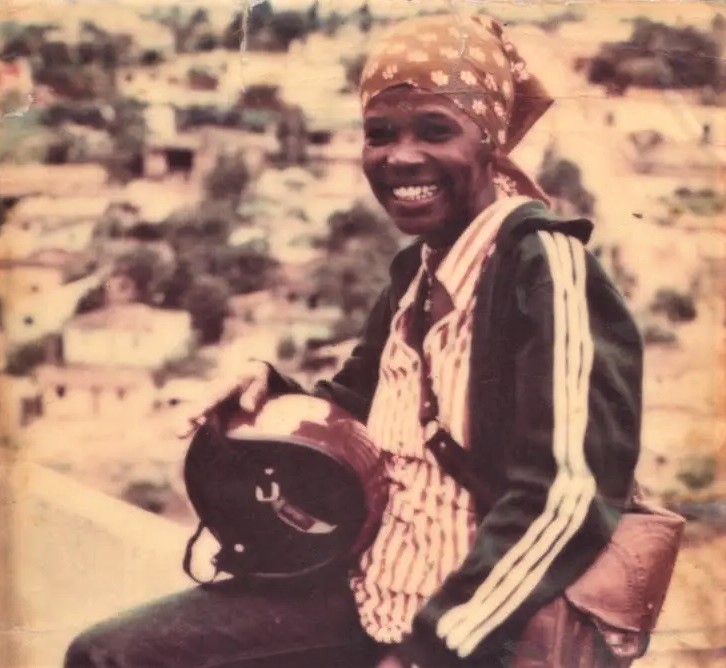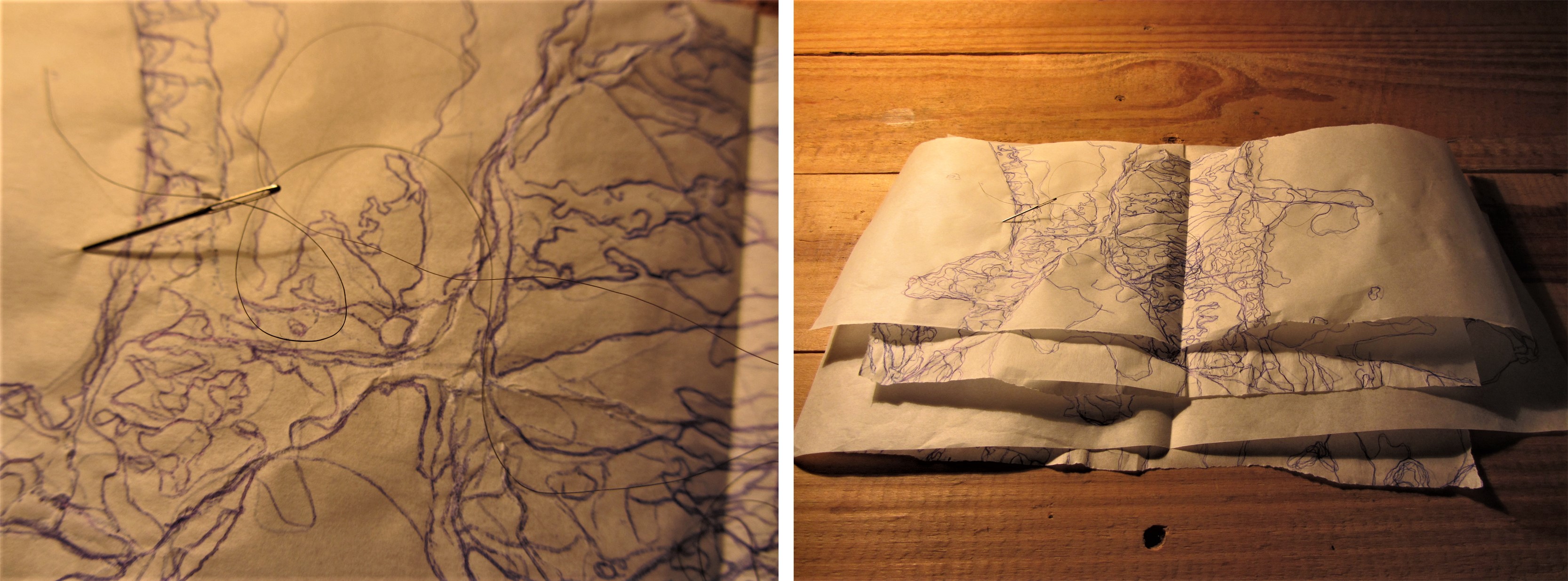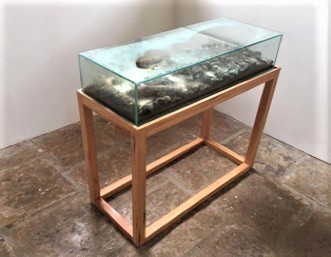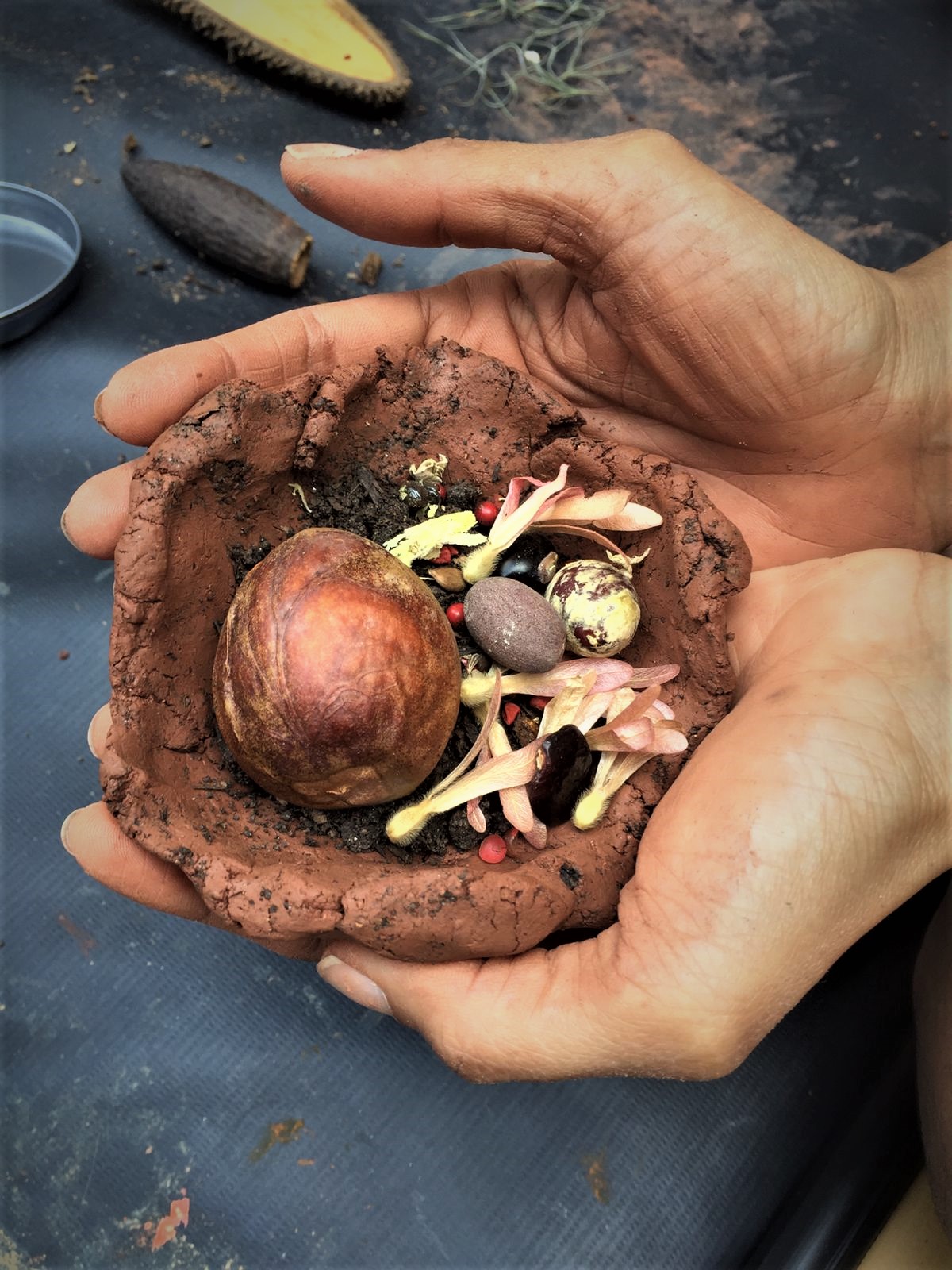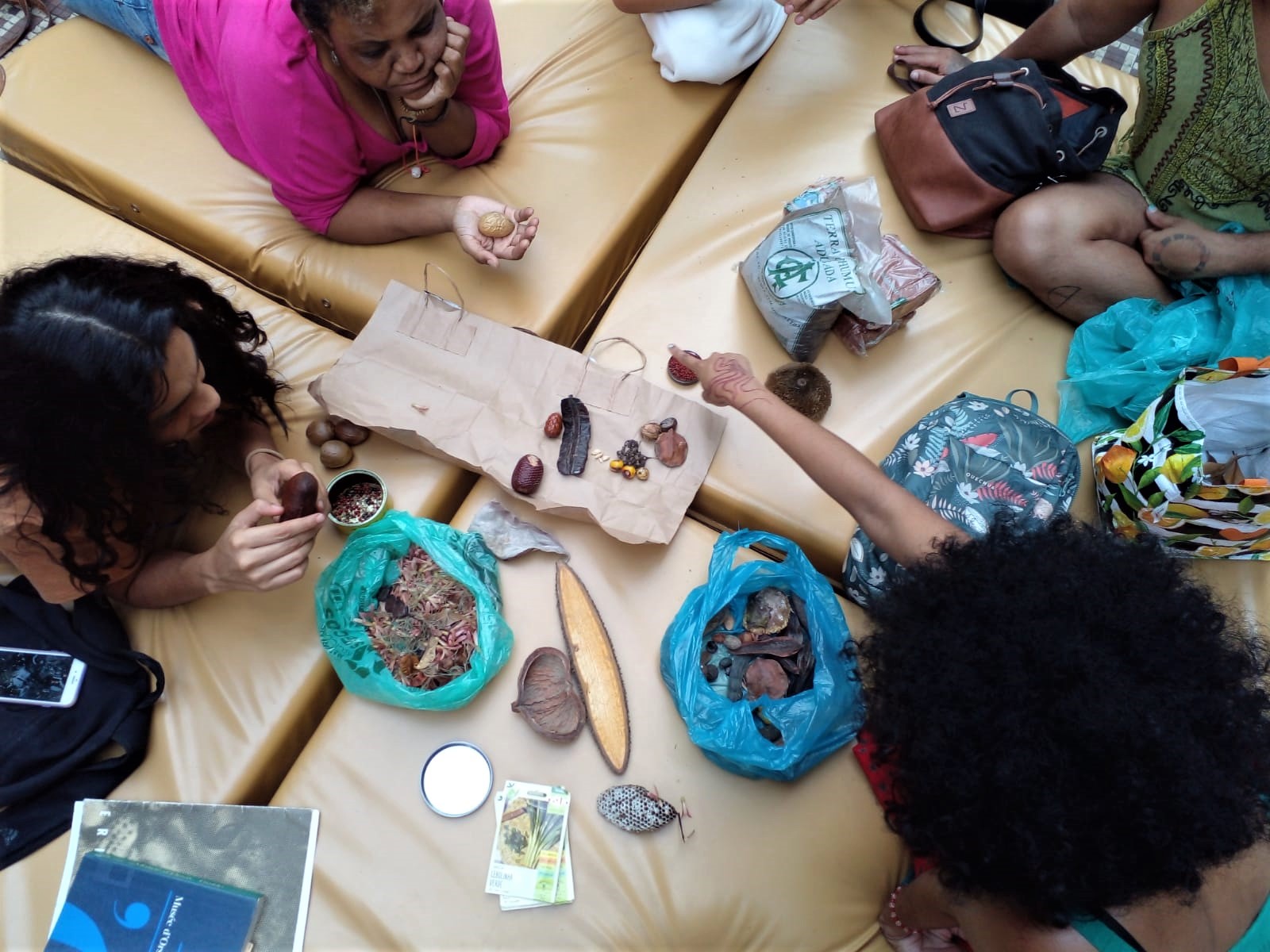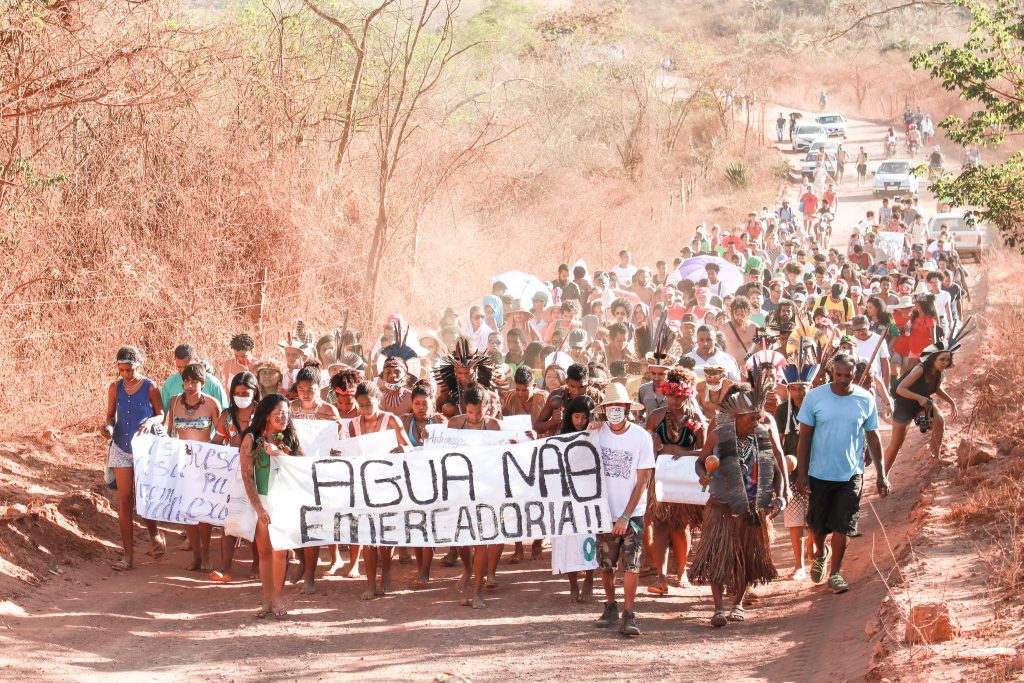I took some soil from the backyard, the red soil I see as I go down, and there I felt the variety of times that constitute us. It looks like something small, informing the need for darkness, feelings, and little vision. It becomes smaller, quieter, the size of a tiny grain, which in the words of Gilberto Gil in his song "Iansã," is so big for knowing who it is by being. It is conflicting to live in the flow of persisting in being within a society that imposes not being, as Beatriz Nascimento tells us when talking about the challenges of life in an invaded territory. She guides us in perceiving the multiple paths that are remade daily in search of organizations, in favor of the prosperous life they tried to make us forget that we once lived, knew, and perpetuated.
In our circle meetings, even if they were remote and virtual, I found ways to restore this oblivion. We exchanged earthly dreams of memories embodied in our lives outlined by black dreams. It was like grasping the red soil I embodied. Beatriz pointed the arrow before the horror of slavery, to the depths of unsubjugated times, to remind us of the civilizational legacies of transmutation from which we descended. It was like going down to the bottom of the well, as Mother Stella de Ochosi teaches us: a humid, earthy space, capable of regenerating, remembering, and starting again.
The ground, composed of multiple rock formations in a cyclical, continuous, endless phenomenon, keeps the incarnated historicity of the planet in its materiality. From the boiling magma to the eroded minerals in the mountains, in an infinite time for the individual human existence, it inhabits the stories that compose us. The red iron of the soil I now hold in my hand connects with the iron that colors my blood, whispering about our similarities in the synchronic composition of planetary life. It is in the earth, in the ground—as Beatriz points out—that the quilombola entity is forged and remade over time, as a response to the cosmic relational disconnection between us and the skin of the world. And from this desire to connect arises the desire to make soil, to face the cycles with responsibility, and to become radically involved in existence.
